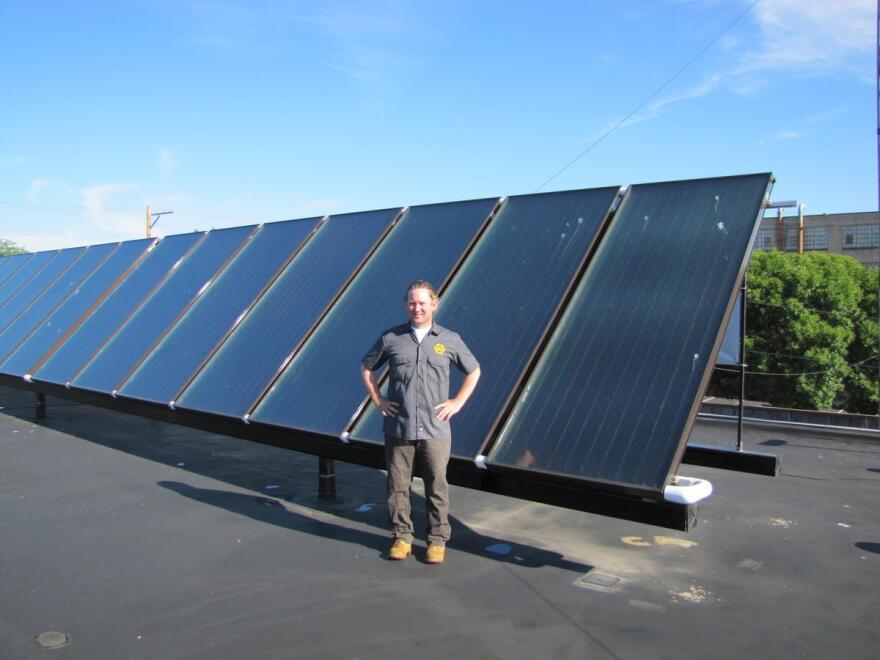Dozens of brew masters, water policy experts and engineers are gathering in Milwaukee this week to talk about the role water plays in beer making.
The 7th annual Great Lakes Water Conservation Conference kicks off Tuesday at Discovery World. Completely organized by volunteers, the two-day event moves from city to city around the Great Lakes Basin each year to keep the discussion going.

WUWM's Susan Bence caught up with a few of the volunteers to hear their perspectives on the role of the conference:
Writer Lucy Saunders says part of her motivation stems from her staunch support of the Great Lakes Compact.
"One of the tenets of the Compact is that all water-intensive industries need to practice conservation. And I thought wouldn’t it be great to get all of the breweries together from places where they know a lot about water conservation, and then talk to breweries in the Great Lakes Basin and tell them about their best practices," she says.
Saunders has written books about beer and food. “I really believe that water usage it going to be critical for all brewing, all agriculture, especially within the Great Lakes Basin,” she says.
Russ Klisch, president of Lakefront Brewery in Milwaukee, says water is one of four beer ingredients. “And it’s a very important ingredient. It has to have the right amount minerals, so it has a certain taste and flavor and pH. You always have to have good water to make good beer,” he says.
Flint, Michigan’s water crisis is waking the country up to challenges other communities could face. “So you have to keep on top of water and you have to learn to treat it and discharge it,” Klisch says.
Sarah Schenck is an associate attorney with Reinhart Boerner van Deuren. She'll be part of a conference panel diving into the complicated world of regulatory trends. “Breweries take in and discharge water and so you want to make sure you have the right permits in place and that you’re not in violation of any of your permits. It can be very expensive for breweries, depending on the standards of contaminants in the discharge,” Schenck says.

Mike Kallenberger is founder of Tropos Brand Consulting. He has dug into beer drinkers' attitudes about sustainability. “Beer drinkers typically value sustainability and protecting the environment even more so than the average person. And so it’s really important for brewers to be able to communicate their efforts to their drinkers because that’s one of the brand values that will help attract them to the brand and reinforce their loyalty,” he says.

Owner of Hinterland Brewery Bill Tressler says brewers are adopting conservation in their kitchens as well as their breweries. “Every place you make the subtlest change they all add up,” he adds, “the most important thing is teaching the culture within your organization because to be honest a lot of the people who come into your organization may have come from somewhere they just had bad habits. So whenever we’re hiring people we try to find like-minded people but we also try to teach a culture that involves composting and just using water when it’s needed.”
Brewer Russ Klisch predicts the next two days will be filled with brewers sharing ideas.
“I think the product itself encourages conviviality,” Lucy Saunders adds.







